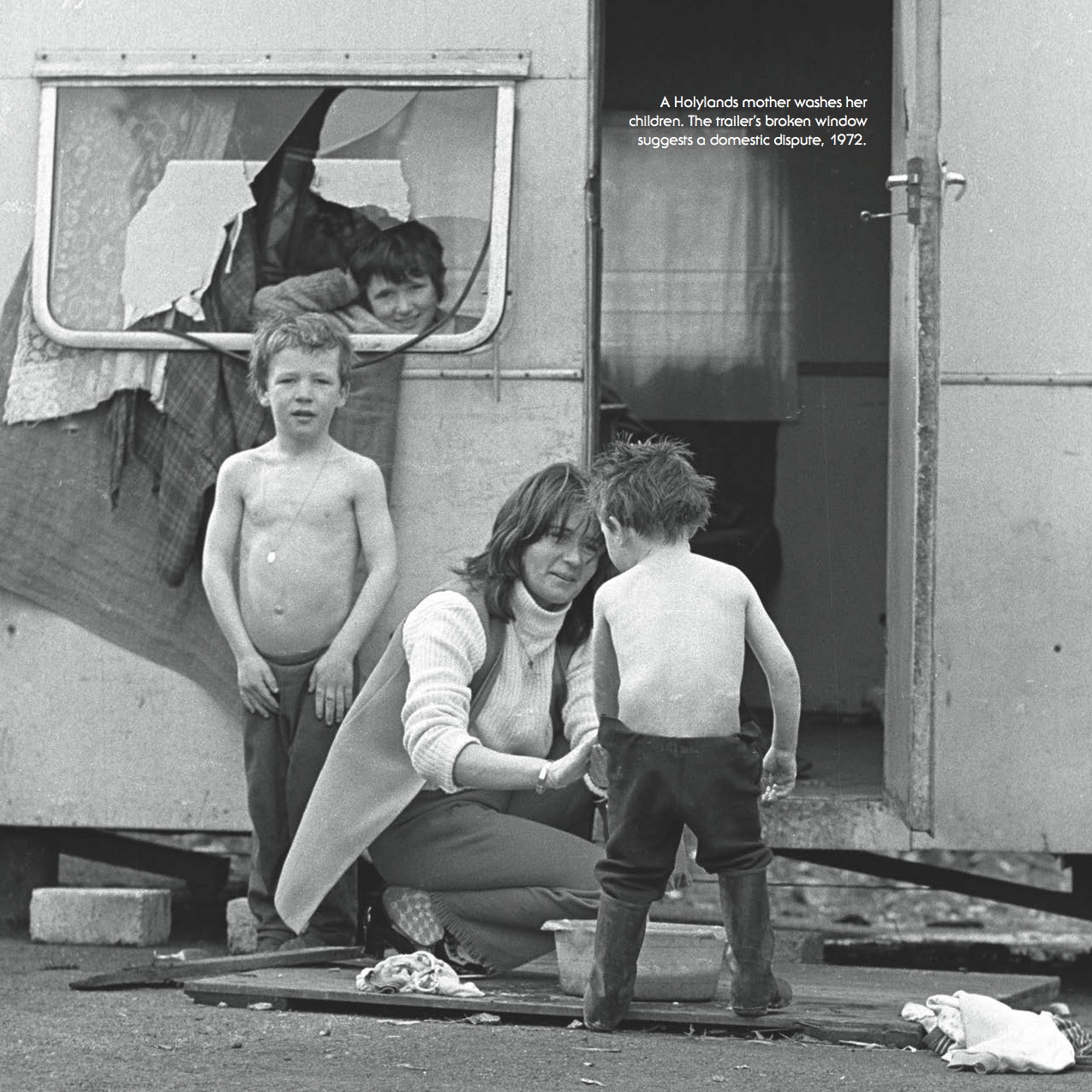Noted anthropologist returns to Memorial

Dr. George Gmelch has come full circle at Memorial.
In the early 1970s, as a young anthropologist from San Francisco, Calif., he received a two-year fellowship from the Institute of Social and Economic Research (ISER) to study Irish travellers, a traditionally nomadic ethnic group also known as tinkers or Gypsies.
Now he’s working with the national On the Move project studying the impacts of employment-related mobility on workers and their families, employers, and home and host communities.
“George and Diane Royal, George's research assistant, are responsible for studying mobile workers employed in the province’s offshore oil and gas sector," said Dr. Barbara Neis, project director, On the Move. "He is bringing to the project insights garnered from his  earlier research on return migration to Newfoundland and in the Caribbean, as well as his research on Irish travellers. We’re really pleased to have him on our team.”
earlier research on return migration to Newfoundland and in the Caribbean, as well as his research on Irish travellers. We’re really pleased to have him on our team.”
Dr. Gmelch recently spent seven weeks in the province interviewing workers and their spouses and thoroughly enjoyed being back in Newfoundland and Labrador.
“The only thing I really recognize from 1972 is the old dining hall, the gym and the MUN pool. The anthropology department was in temporary quarters, and in those days there was nothing much to do downtown,” said Dr. Gmelch, who is happy to be working with the On the Move team and hopes to return next summer for more research. “They’re all fun and interesting people to work with – Nicole Power, Barb, Sharon Roseman and Kelly Vodden are all great.”
How did a young anthropologist from California hear about ISER in the early 1970s? A graduate student at the time, Dr. Gmelch was planning on going back to Mexico for his PhD fieldwork, but having spent the summer in Ireland with his wife Sharon, also an anthropologist, he became acquainted with Irish travellers. Later he shared his pictures of travellers with his PhD supervisor, noted anthropologist Dr. Charles Erasmus.
“Basically he told me to forget Mexico, that no one had ever studied travellers. Back then, if you could find a group that hadn’t been studied, that was the Holy Grail,” said Dr. Gmelch.
Dr. Erasmus was also acquainted with the late Memorial anthropologist Dr. Robert Paine, then director of ISER.
After receiving the ISER fellowship, Dr. Gmelch and his wife spent a year living with travellers in their own horse-drawn caravan in a camp near Dublin. Forty years later, they returned with an Irish film crew in tow to document how travellers, now no longer nomads, are coping with a settled life.
Dr. Gmelch says the experience of returning was an emotional one.
“All the men my age and many younger as well were gone, mostly dead from alcohol abuse. But we were able to find many of their wives and now grown kids.”
Most travellers have had difficulty adjusting to settled life, a phenomenon Dr. Gmelch says is shared with other nomads.
“Adrian Tanner saw the same thing among the Cree and Jean Briggs with the Inuit – all peoples who were once nomadic. Nomadism introduces change in your life, new places, new things to look at, new people … I sometimes think the frequent travel of retirees is motivated by the same desire for change that drives travellers.”
Many travellers encountered during the making of the film, including some young people who had never lived on the move, expressed nostalgia for the old nomadic days.
“Even though the travellers then were living in dire poverty, under canvas on the side of the road, some of them think that’s a better way to live.”
Today the suicide rate for male travellers is six times the national average in Ireland.
Especially moving to Dr. Gmelch was, apart from discovering three traveller children who had been named after him and Sharon, was the reaction traveller families and individuals had to his photographs.
“If you have a sibling who committed suicide, or a parent who died and you have no memory of what they looked like, and no pictures of your own, and then someone from the distant past, someone from America, comes along out of the blue and shows you a photograph, that can be mind blowing.”
The film Unsettled:From Tinker to Traveller has been broadcast in prime time to huge audience shares several times in Ireland. It has been viewed more than 15,000 times on YouTube.
“I’ve always tried to communicate through the printed world – but this film has had more of an impact than anything Sharon or I have ever published about travellers. Some in the Irish media described it as the antidote to the ugly My Big Fat Gypsy Wedding reality show.”
A collection of Dr. Gmelch's traveller photographs will be published this fall by Indiana University Press.
Dr. Gmelch’s historical connections with ISER and Memorial make Dr. Sharon Roseman, editorial director of ISER books and a member of the On the Move team, proud.
“George is one of the many scholars funded by ISER who went on to be internationally renowned leaders in their disciplines. Along with other projects, his doctoral research in Ireland helped to demonstrate the value of ISER’s long-standing focus on Newfoundland and Labrador, as well as other North Atlantic societies.”